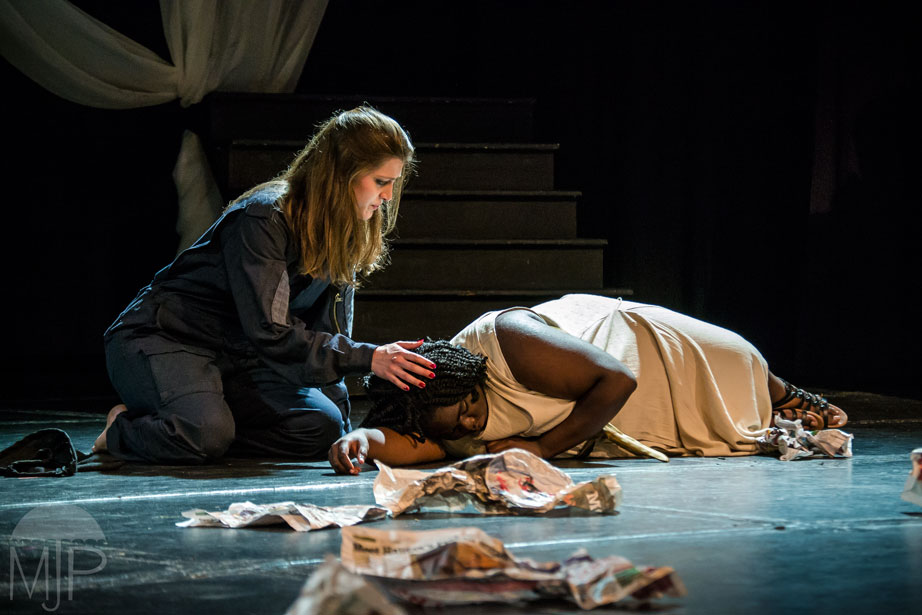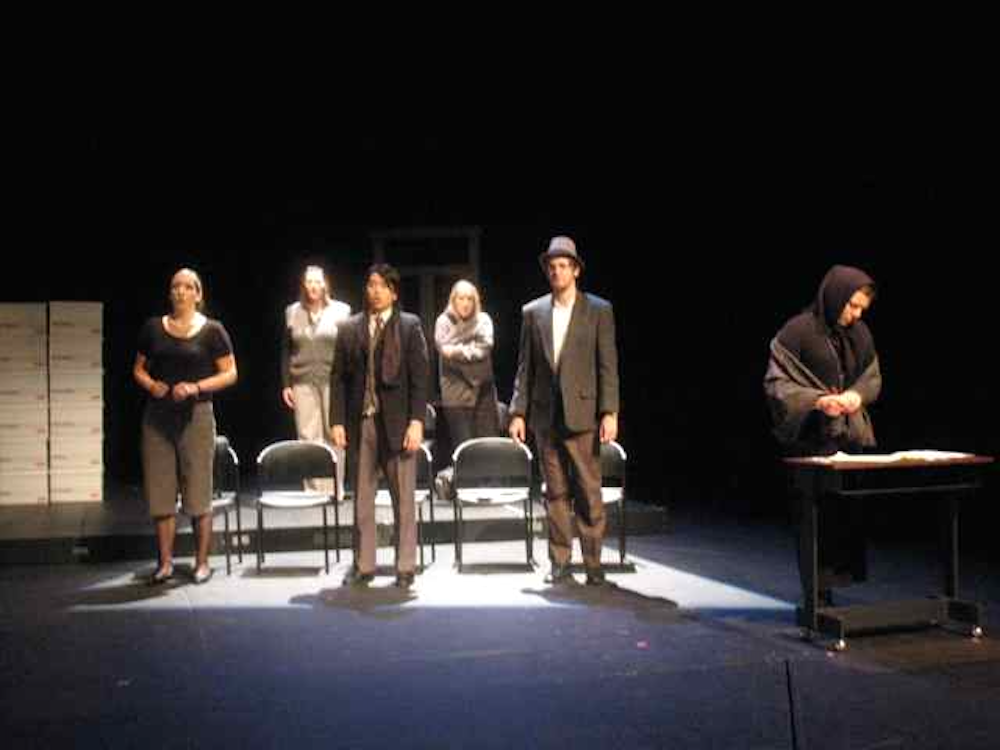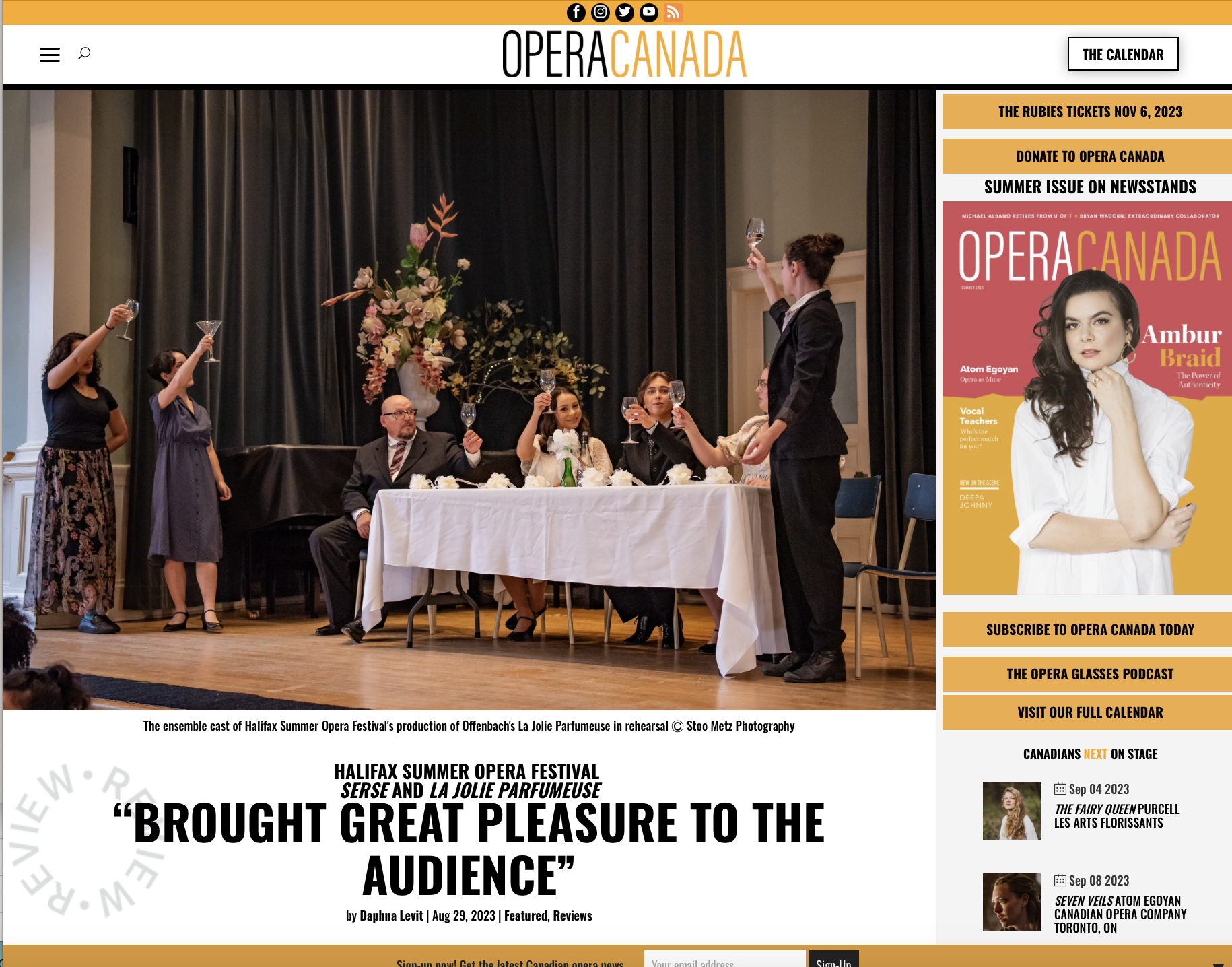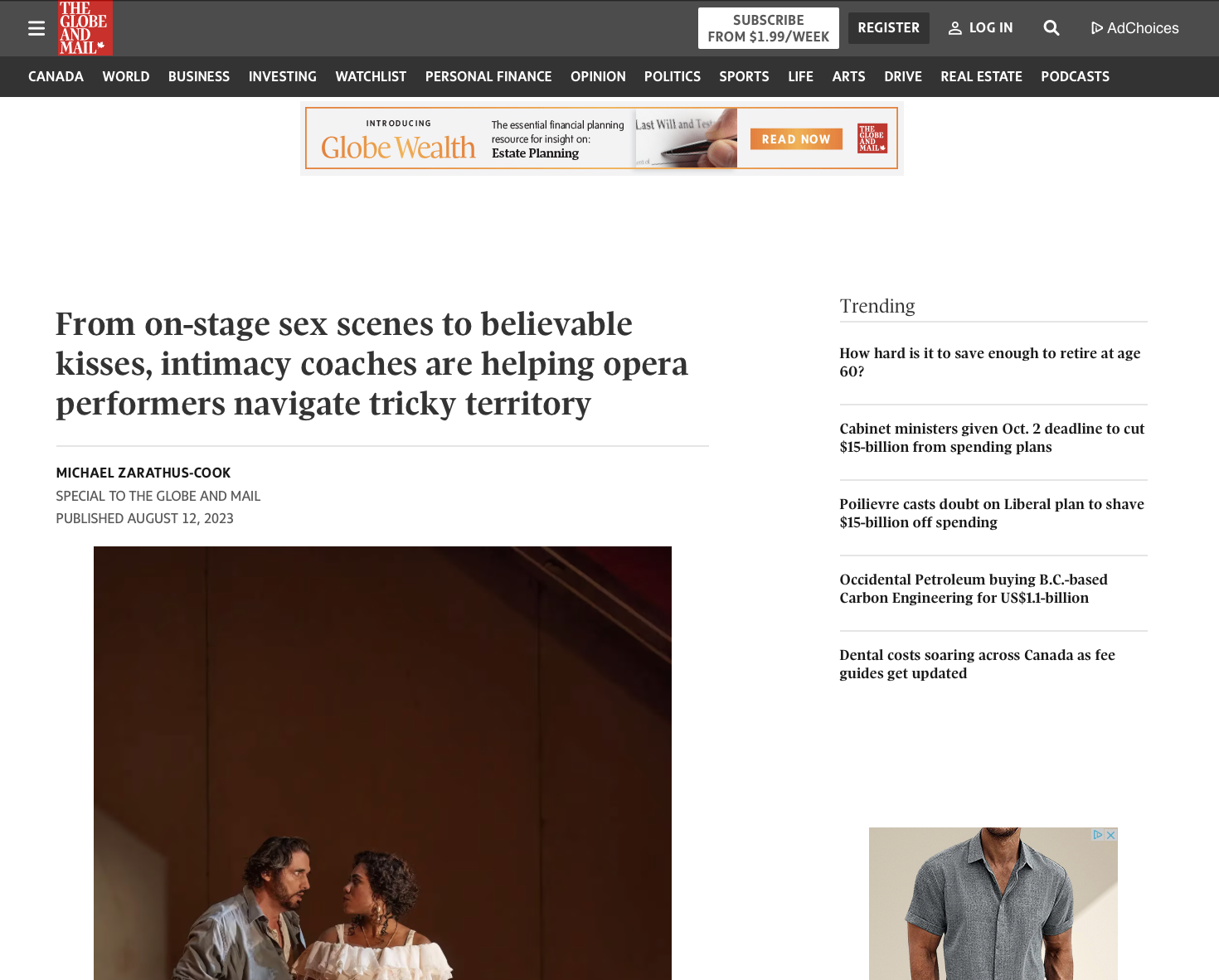Susanna becomes Playboy bunny in witty Marriage of Figaro

By STEPHEN PEDERSEN Arts Reporter | Opera Review
Halifax Chronicle Herald
Sun. Aug 3 – 6:14 AM
Director Garry Williams found a witty model for staging Mozart’s Marriage of Figaro for the Halifax Summer Opera Workshop production in the Dunn Theatre Friday night.
The Playboy bunny, projected large and dead centre on a rose background which served as a curtain raiser in the absence of a curtain, set the scene for librettist Lorenzo da Ponte’s 18th century rollicking bedroom farce.
Best of all, he dressed Susanna in a skimpy costume which was a cross between a Playboy Bunny and a French Maid. The famous Hefner bunny is a perfect metaphor for Susanna, not as the whip-smart, bouncy fireball she is in the opera, but as she appears in the eyes of the lascivious Count Almaviva.
He is filled with lust and longing to exercise the feudal “droit de seigneur” to deflower this particularly alluring serving wench on her wedding night. The Duke has renounced the letter of the right, but fully intends to fulfil the spirit of it.
The action of the play, brought into sparkling life by Mozart’s incredible score, which is Shakespearean in its psychological depth, centres on the determined attempts of Susanna, her intended, Figaro, and the Countess Rosina to embarrass the count into dropping his scheme.
Unaccountably, she loves her unworthy hubby with all her heart. If you have ever seen Rossini’s Barber of Seville, you will understand why.
Not all images in the production meshed as well with script. Surprising us with a lovesick Cherubino singing Voi che sapete jumping out from behind a screen with a tennis racket slung low over soprano Ariel Sinclair-Chin’s lanky physique and the concert gear of a Mick Jagger, drew a quick, but cheap laugh. After that initial surprise, the metaphor was just too incongruous to go anywhere.
Nevertheless, the production is a real joy to watch and listen to.
All the singers are competent and skilled though not all are as brilliant in their performances as Sinclair-Chin [we think Stephen means Vania Chan, here!].
She is a first-rate comedienne, an ideal soubrette with an elfin presence and a quicksilver mind. On stage for much of the opera, she captured our attention and like a real professional managed to animate her scenes without upstaging her colleagues or eating the scenery.
Jeremy Carver-James as Figaro had a very pretty quality to his voice, but his acting on Friday night was wooden and sluggish.
Figaro is an assertive personality, a real match for Susanna in this opera, which is, after all, named after him. But not much of that benign aggressiveness showed up in Carver-James’s performance.
Andrew Pappas as the amorous count sang with strength and authority.
He ably conveyed the character of the count, but, in reality, though playing a major role, the count is a minor character. He does, however, as do many of Mozart’s rascally comic heroes, apologize and beg forgiveness irresistibly.
Natalie Donnelly sings the part of the countess with a full, fruity soprano and hits all the right emotional targets in her two famous arias, Porgi amor in the first act and Dove sono in the fourth.
She is more acted upon than acting, but Donnelly did not exaggerate the tragedy lurking in the background of these two magnificent operatic set pieces.
The minor characters of Marcellina (Heather Wilke), Bartolo (Christopher Mallory) and Basilio/Curzio, the gardener Antonio (Giovanni Spanu) and his daughter Barbarina (Karina Brazas) round out the cast with well-modulated, strong performances.
The fact that Wilke is too young and too beautiful to be a convincing long-lost mother to Figaro is another incongruity but unlike the Mick Jagger superimposition does not stretch our suspension of disbelief to the breaking point.
Finally, music director Lynette Wahistrom played with the highest level of musicality, demonstrating right from the beginning of the overture, a marvellous depth of expression within the difficult technical challenge of playing a reduced Mozart orchestral score on piano. Her tempos were perfect, her balance of tone and dynamics ideal.
The last performance of Mozart’s Marriage of Figaro is today at 2:30 p.m. in the Dunn.
Tickets are $20 adults, $15 for students and seniors and $5 for children 12 and under, and are available from the Dalhousie Arts Centre box office at 6101 University Ave., or by phoning 494-3820 or 1-800 874-1669






